June 17, 2012 Auroras
Grand Rapids, MN
Sunspot 1504 had two M1 flares and hurled out two coronal mass ejections toward Earth. The first CME would sweep up the second before reaching Earth. Combined, they would deliver a pretty significant blow to Earth's magnetic field. See images at the bottom of the page to see the data (courtesy of SDO, SOHO, STEREO, and ACE).
The CME arrived during the late afternoon and appear to impact in multiple steps, eventually bringing Bt up to 40 nT, which is very large. If that total field had been directed due south, it would have produced an absolutely spectacular display of northern lights and could have caused power grid disruptions in high latitudes, but it was aligned in the opposite direction for that. As a result, the impact of this CME was pretty weak until the field slowly turned south in the late evening. At the same time, the total field decreased, so it was not the most spectacular display of lights I had ever seen, but it did briefly fill the entire northern half of the sky. I did timelapse over the entire night. Because it was near the summer solstice, there was only four hours of complete darkness.
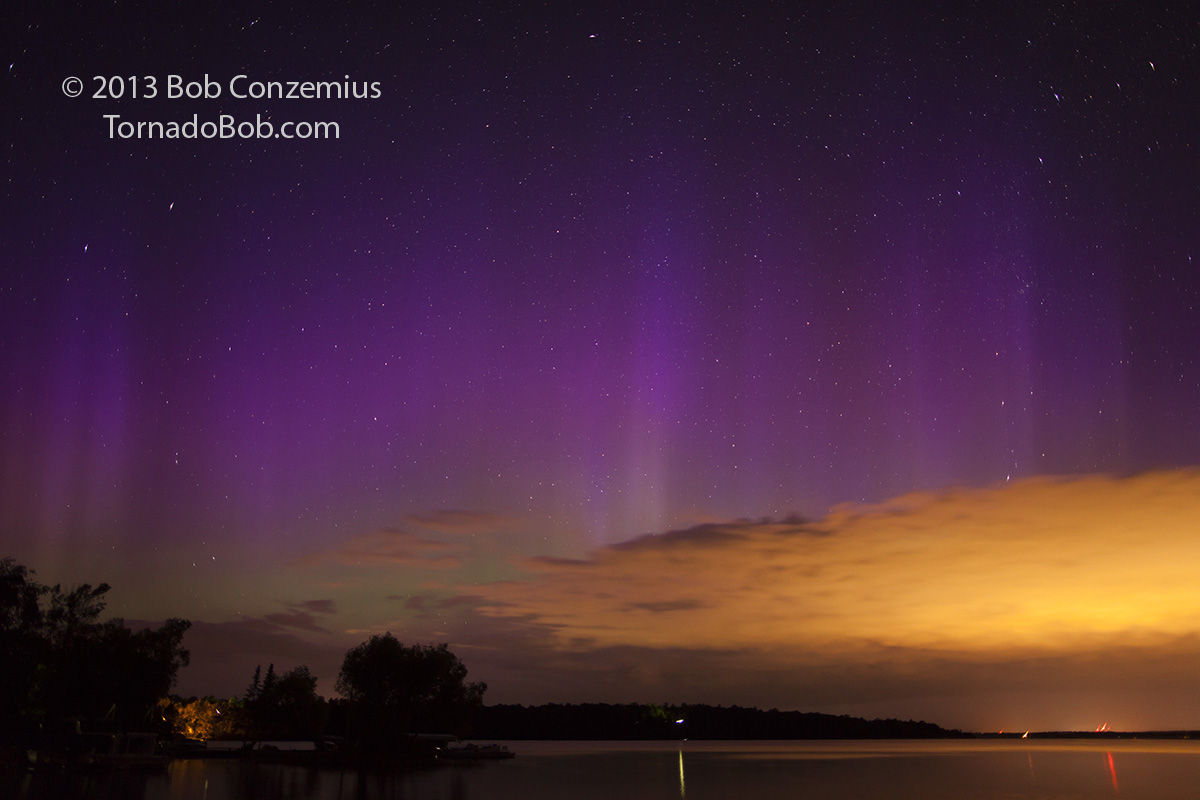 |
| Multi-colored auroras on Pokegama Lake. |
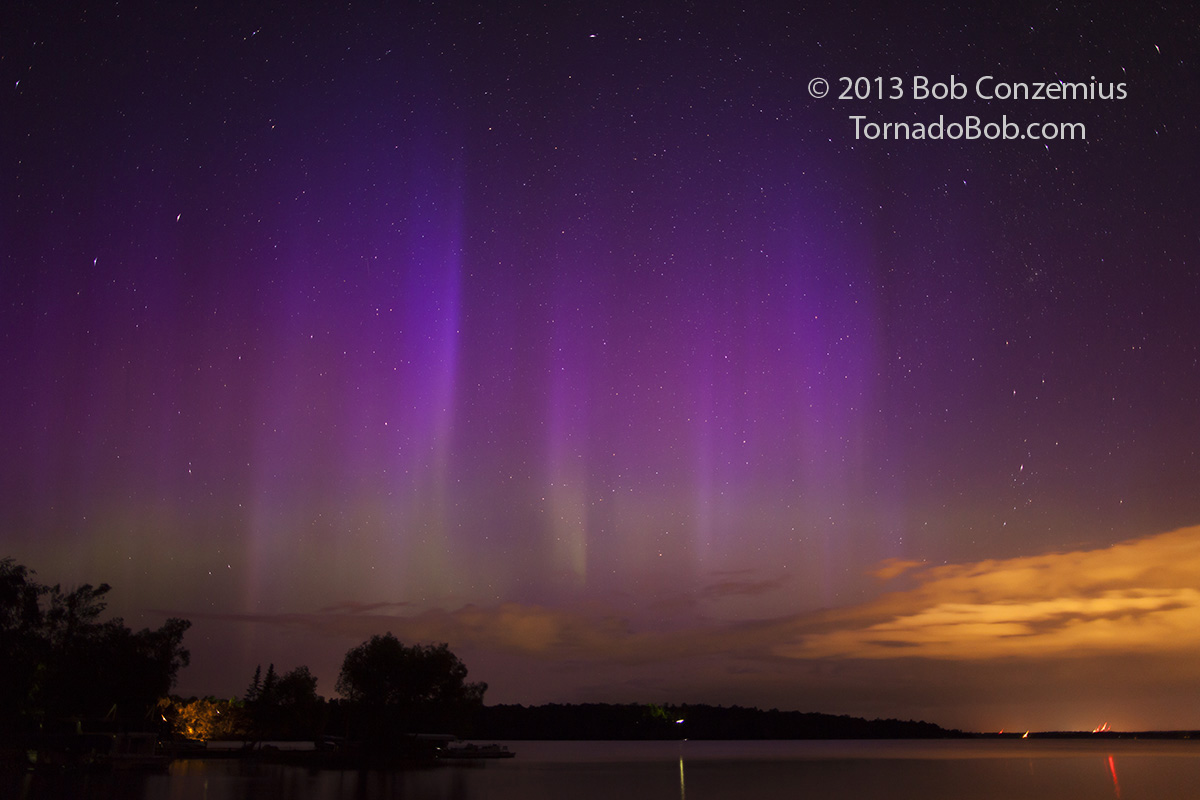 |
| Multi-colored auroras on Pokegama Lake. |
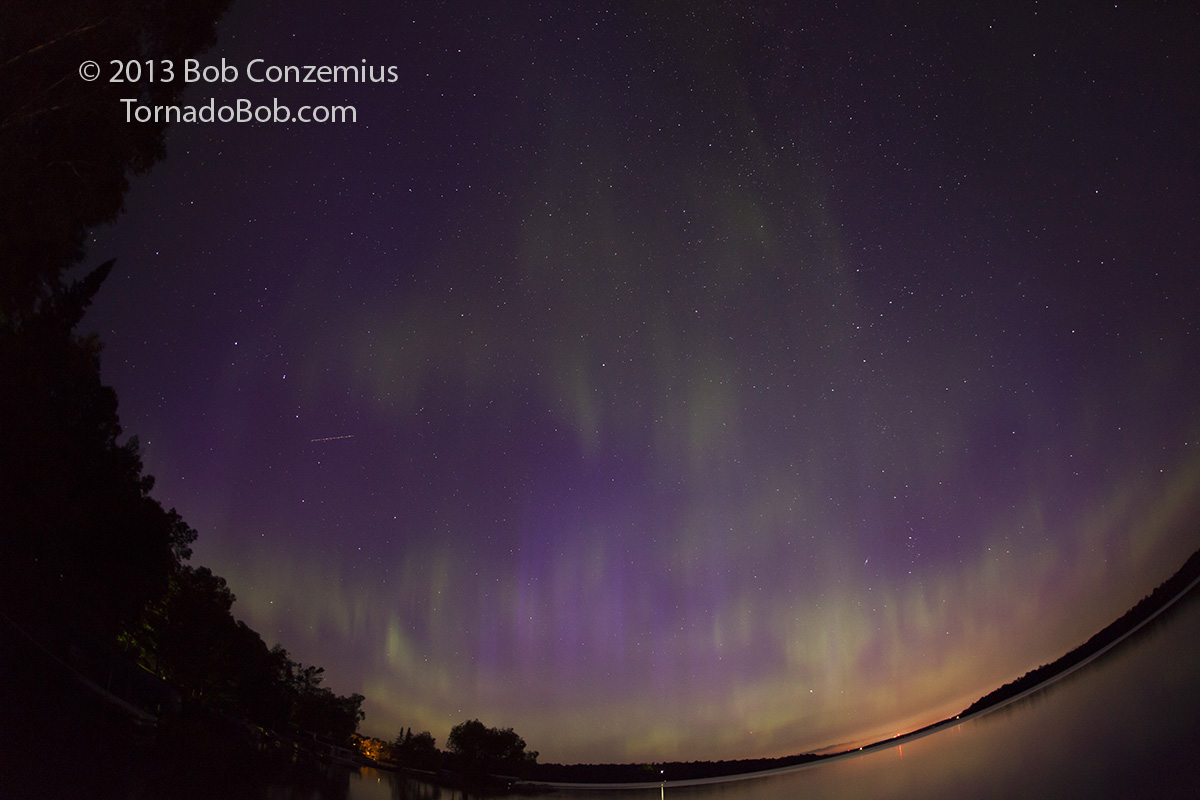 |
| View taken with the 15mm fisheye. |
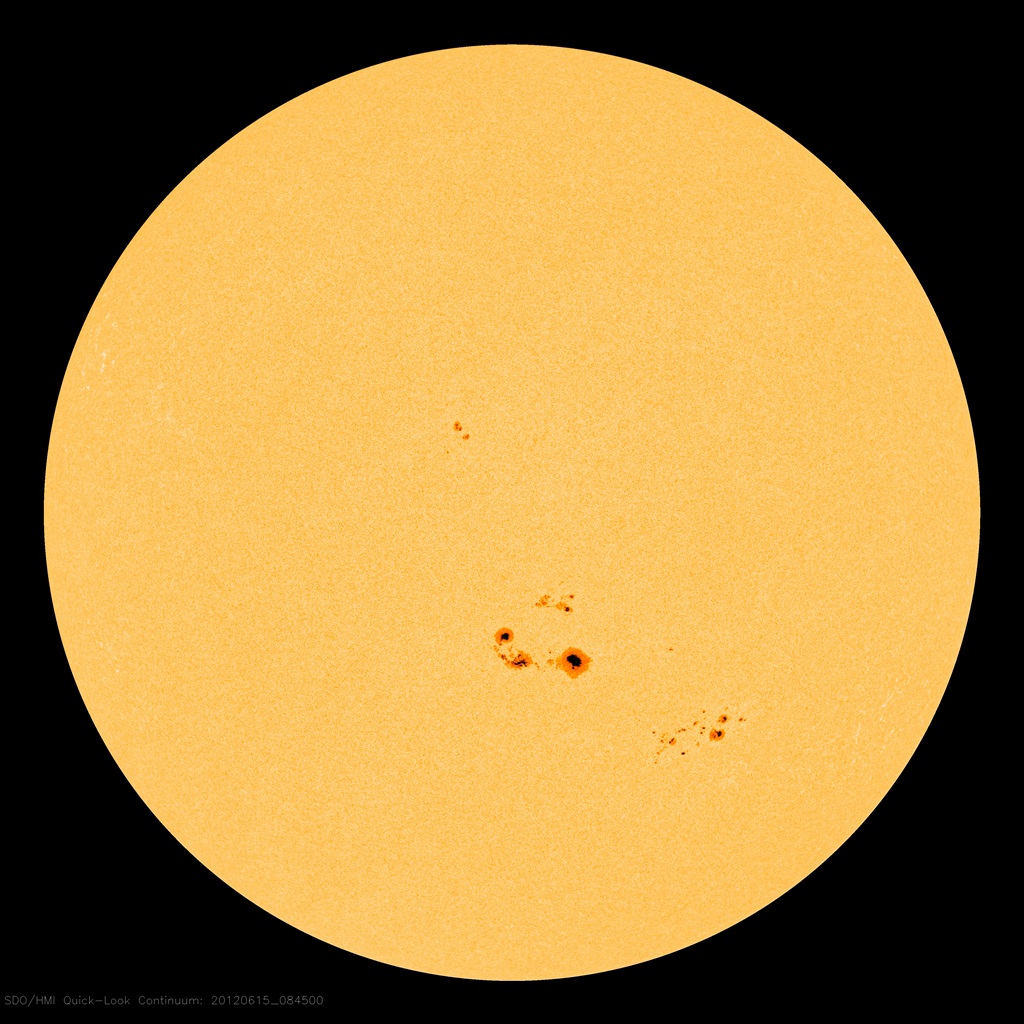 |
| A picture of Sunspot Group 1504 from Solar Dynamics Observatory (see link above). |
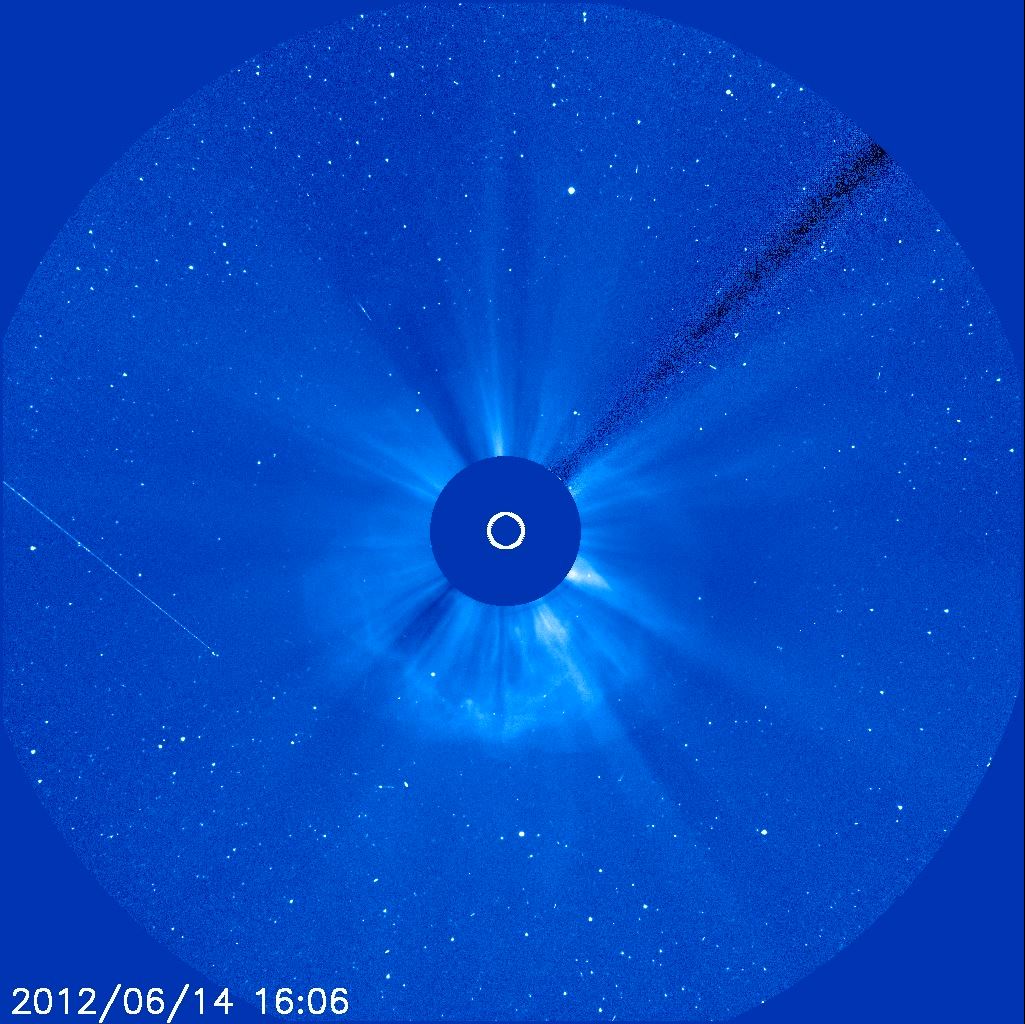 |
| A picture of the CME from SOHO (see link above). |
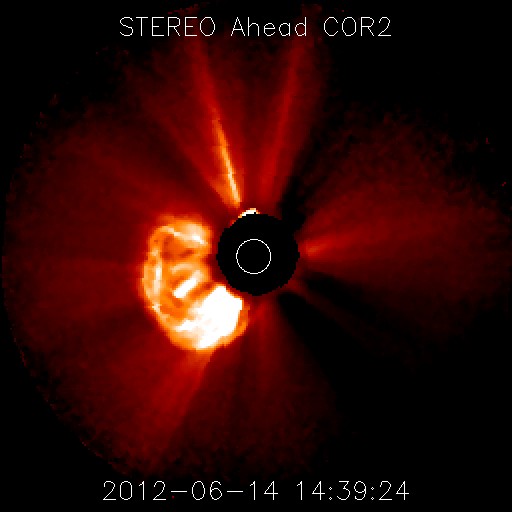 |
| A snapshot of the outgoing CME from the STEREO Ahead spacecraft. |
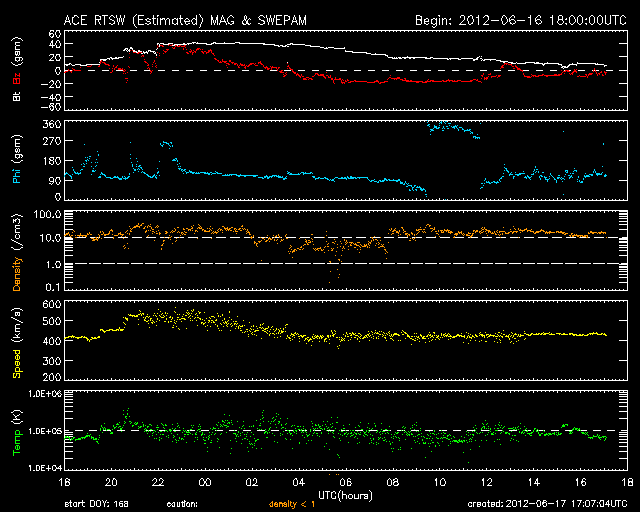 |
| A time series of the interplanetary magnetic field from ACE Spacecraft. |
Back to Auroras | Home


